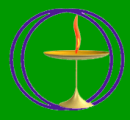
|
Unitarian Universalist Fellowship of the Mendocino CoastSpirituality Essay:Facing Our Mortality ( March 2009 ) |

|
Unitarian Universalist Fellowship of the Mendocino CoastSpirituality Essay:Facing Our Mortality ( March 2009 ) |
| Home | Beliefs | FAQ | Links | Rick Childs Biography | Spirituality Essays |
 For me, death is pretty much of an abstract concept. The fact that
someday I won't be here to enjoy all that our human life offers is so
overwhelming and horrible that I keep its reality pretty much in the
furthest chambers of my mind. I'm pretty sure I'm not alone in
that.
For me, death is pretty much of an abstract concept. The fact that
someday I won't be here to enjoy all that our human life offers is so
overwhelming and horrible that I keep its reality pretty much in the
furthest chambers of my mind. I'm pretty sure I'm not alone in
that.
I recall a line from a recent MTC play that's stayed with me because of its pointed reality. A woman with a terminal cancer, aware that her death was just around the corner, says this line to a friend, "You know you're going to die. But I know I'm going to die." She goes on to say how much more precious and meaningful life had become to her, now that it was about to be taken from her. Those who've had near-death experiences universally report the same..a much more acute appreciation and involvement with life.
The huge topic of our mortality is well beyond the scope of this essay, of course. But the play's important message makes me wonder if my keeping my mortality at full arm's length isn't so smart.
On the other hand, it may well be true that life becomes so much better lived when we're free of the discomforting awareness that this will be someday gone. Ignorance is bliss, as they say. John Updike, someone preoccupied with his mortality, often wrote about the harm - the darkness - this awareness cast over his life.
It's important, I think, to be aware of how each attitude profoundly affects how we go about our day-to-day living.. its effects on how we use our time, how we're able (or unable) to be fully present `in the here and now,' and how we ultimately find meaning and our purpose in life. Where are you on the spectrum between the "gobble it before it goes" and the "So what? I've got forever" alternatives
Ideally, following Aristotle's "moderation in all things" wisdom, each of us has found our own optimal point along the spectrum, pretty close to the middle, where we live neither in denial of, nor overly aware of, our mortality.so we're able to maximize our life. And then, depending on life's events, allowing ourselves to adjust slightly towards one view or the other, so we're always getting the most we can from our limited - and decreasing - time here on earth.
These thoughts connect to the "Living Will" workshop the Fellowship is sponsoring on
March 7, as I think it will offer us several large potential benefits.
The workshop will, first of all, enable us to lock in just what `heroic' treatments each of us would like or not like, should we wind up in a condition where we were unable to decide for ourselves.
Secondly, and perhaps most importantly, it will spare our loved ones the wrenching anguish of having to make that decision for us.as they face trying to balance their love for wanting us in their lives as long as possible with all the ethical, medical, and financial implications, along with having to guess "what we probably would have wanted" as well. Sparing them from this miserable no-win situation is truly a great gift of your love for them.
But the final benefit is what it might do for our own lives - and the time we have left. For all those like me, living too much in the denial of my Never-never Land, bringing our mortality to the foreground feels very healthy: deciding when life-sustaining treatments should cease.facing what not being here will look like.
If you don't already have a Living Will, I hope you'll be joining me there as well.
This is one in a series of essays on spirituality by Rick Childs, lay leader
of the Unitarian Universalist Fellowship of the Mendocino Coast. You may want to:
Read more Spirituality Essays
Read more about Rick Childs or
send e-mail to:
Read more about the
Unitarian Universalist Fellowship of the Mendocino Coast.
Questions about Unitarian Universalism? Ask Rick Childs,
Questions about our web site? Ask Ted Pack: